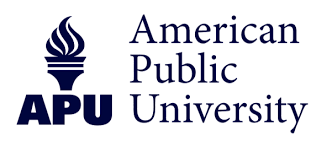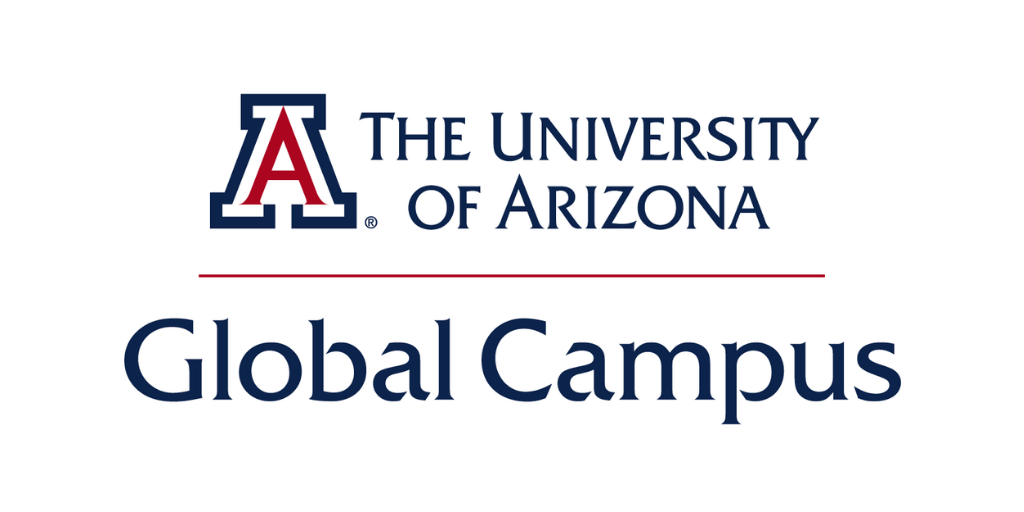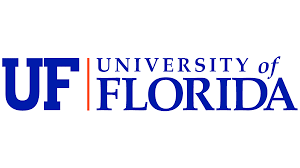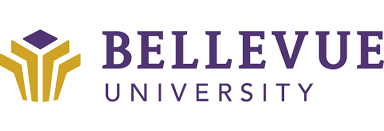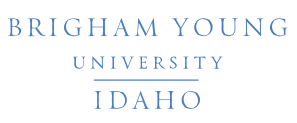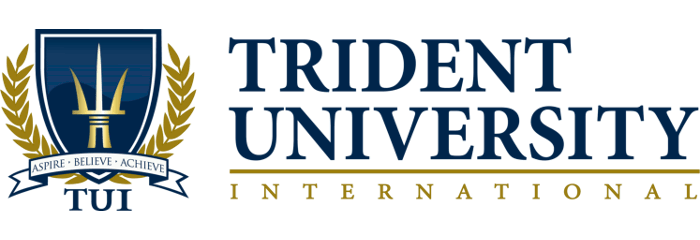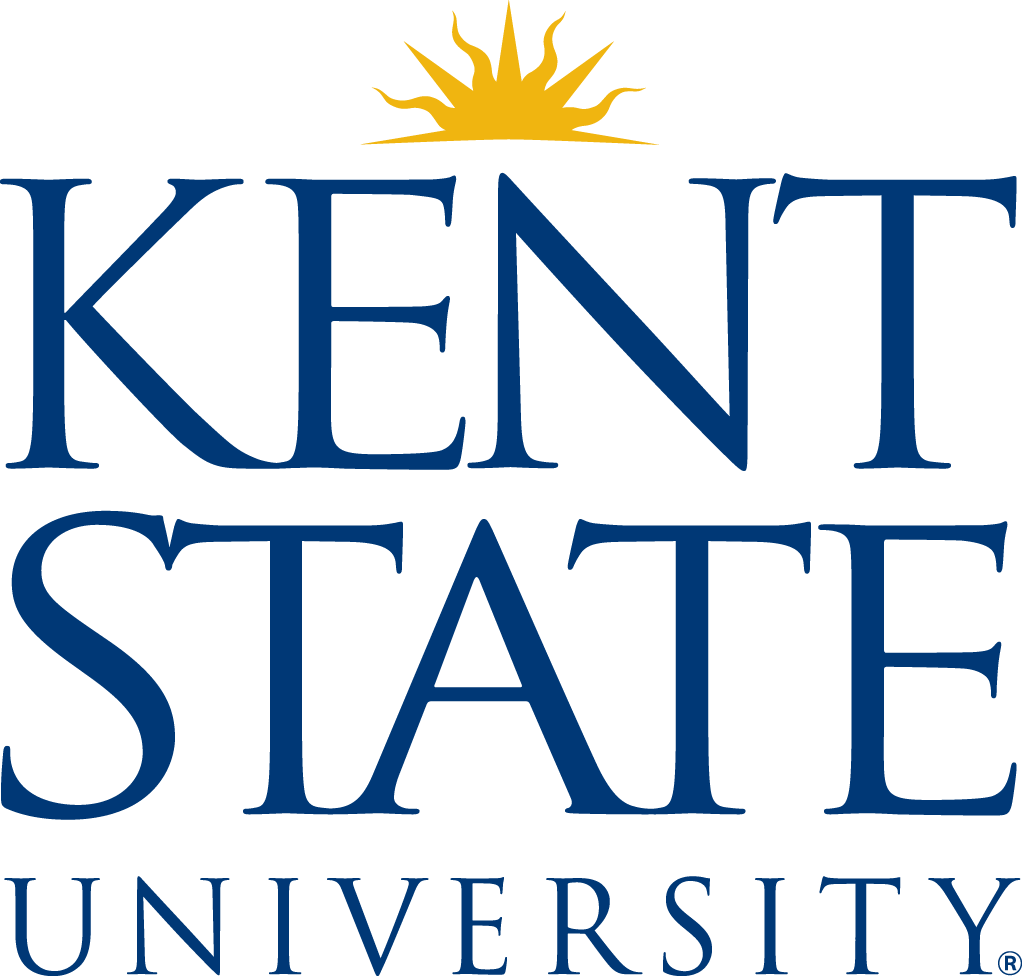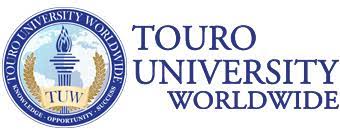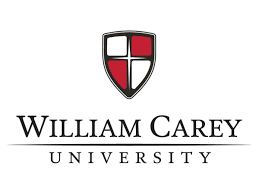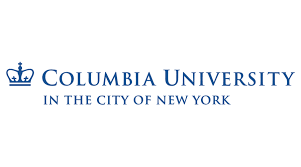Careers in health education and public health are some of the most secure in the nation right now, with the demand for qualified healthcare professionals continually rising. Getting a health education degree online will help you jump-start your career with minimal impact on your daily life.
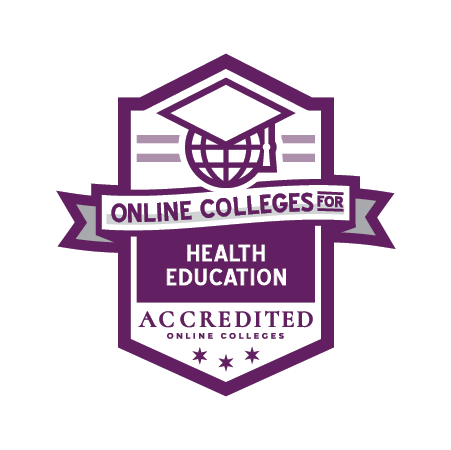
Some of the best accredited online colleges in health education listed here are in various rankings for value, affordability, course quality, and more. But for working professionals, finding the time to study isn’t easy. With an online degree program, you can fit your studies around your busy schedule, advancing your career without sacrificing work and family obligations.
What Classes Will You Take in a Health Education Online Degree Program?
Health education degrees typically start by providing you with a strong foundation in subjects that are key to the discipline. This might include:
- Psychology
- Biology
- Chemistry
- Public health
- Health Promotion
As the program progresses, you’ll look at more specialized subjects. For example, you might take courses in diet and nutrition, mental and behavioral health, and disease prevention. Other courses might cover human development, personal and family wellness, and basic medical terminology.
The specific courses you take will vary from one program to the next. Likewise, you might take some highly specific courses if you specialize your studies in a particular area. For example, if you focus on community health education, you might take courses in community health, community service, and epidemiology. On the other hand, if your health education degree focuses on secondary education, you will take courses in curriculum and instruction, health education pedagogy, and anatomy and physiology.
In many cases, online health education degree programs also include an internship or capstone component. These requirements focus on helping you apply what you’ve learned in class to real-world health education issues.
See AlsoAccredited Online Colleges in Public Health
What Degrees in Health Education Can You Pursue?
Bachelor’s and master’s degrees are the most common programs in health education. There are more bachelor’s degrees typically available than graduate programs. Doctoral programs are even less common, as most roles in health education do not require that level of study.
With that being said, many professions in health education or health services require certification or licensure to practice. Some examples are the Certified Professional Trainer, Corrective Exercise Specialist, and Certified Health Education Specialist credentials.
Certification or licensure is a step beyond your health education degree. In some cases, you might need to complete additional training to get your certification or licensure.
See Also: Accredited Online Colleges in Healthcare Management
What are the Best Health Education Degrees Online?
Accredited Online College uses the most recent data from the Department of Education’s National Center for Education Statistics to rank the best accredited healthcare schools and programs below. Each program is scored individually. It’s then compared to all other universities offering that degree to determine the final score you see by each ranking.
Accredited Online College considers several factors in its rankings. This includes the affordability, student-to-faculty ratio, and the number of programs offered on-campus and online. Because we consider these and other factors, we can create a reliable measure for presenting some of the top health education degrees currently offered. By relying on these rankings rather than simply searching for “online degree health education,” you’re more likely to find a quality program that fits your unique needs.
For more information, see our methodology page.
See Also: Top Accredited Emergency Management Degree Online Options
1. American Public University
Part of the American Public University System, American Public University offers hundreds of degree programs and certificates at the undergraduate and graduate levels. Classes start every month, giving you multiple opportunities to enroll. The institution is accredited by the Higher Learning Commission and has conferred over 100,000 degrees since the mid-90s.
If you want to major in a health education-related field, APU offers a 120-credit BS in Sports and Health Sciences. There are no application fees or fees for textbooks, and you may be able to transfer up to 77% of your credits from your previous study. You’ll explore topics that include:
- exercise science
- fitness and nutrition
- wellness
Additionally, you’ll take classes in physiology, kinesiology, and physics.
A unique facet of this program is its partnership with the National Academy of Sports Medicine. This partnership gives you access to specialized program content and industry certificate examinations. This can lead to official recognition as a Certified Professional Trainer, Corrective Exercise Specialist, or other key occupation.
See Also: 30 Accredited Online Schools in Nutritional Science
2. University of Arizona Global Campus
You can study online and get a degree backed by the University of Arizona by completing your studies at the school’s global campus. U of A’s Global Campus offers dozens of degree options at the undergraduate and graduate levels, including several in healthcare-related fields.
This BA in health and human services is a 120-credit program that allows you to transfer up to 90 credits for graduation. Combined with accelerated courses that last just 5-6 weeks, you can complete your health education degree quickly. Moreover, taking one course at a time allows you to focus on skill mastery before moving on to the next course.
During your studies, you’ll gain valuable experience related to the following:
- Analyzing the relationship between social problems and healthcare
- Exploring multicultural perspectives on health
- Evaluating delivery systems for individual, family, and group healthcare
- Assessing ethical issues in healthcare
- Exploring the political and socioeconomic influences on health services delivery
Upon graduation, you will have the skills needed to pursue a number of health-related jobs, including those in elder care, community organization, and community health services.
3. University of Florida
Part of the State University System of Florida, the University of Florida’s history dates back to the mid-1800s. It’s a highly competitive university for prospective students and offers one of the top health education programs according to our metrics.
The College of Health and Human Performance offers the UF health education and behavior major. It provides a broad foundation in biological and health sciences. It’s designed for students who cannot commit to the typical campus-based requirements of a full-time bachelor’s degree.
As you progress through this program, you’ll take courses like:
- Community and Environmental Health
- Women’s Health Issues
- Personal and Family Health
- Minority Health Issues
This program also has an internship requirement. The health education and behavior UF internship is 12 credit hours and requires that you complete all core coursework prior to undertaking the placement. All UF health education and behavior internships must be at least 40 hours weekly.
4. Walden University
Walden University is an online-only institution that offers bachelor’s, master’s, and doctoral degree programs via distance learning. Established in 1970, the institution’s faculty has been explicitly trained in online instruction. You’ll have a student-success advisor upon admission into a program.
In Walden’s Bachelor of Science in Health Studies, you’ll gain a broad understanding of key areas within the industry. You’ll take courses in:
- policymaking
- the nation’s healthcare system
- epidemiology
You’ll also be able to personalize your curriculum. For example, you can progress into a master’s degree program by taking up to 25 graduate credits during your undergraduate studies.
There are three concentrations to choose from, aside from the general program. These include:
- Health Psychology and Behavior
- Health Promotion and Wellness
- Healthcare Management
You can also opt for a traditional course-based format or “Tempo Learning,” a self-paced option that allows you to speed up or slow down your studies as needed. More information on these learning styles can be found on the program’s webpage.
5. University of Alabama at Birmingham
Established in 1936, the University of Alabama at Birmingham has a total enrollment of around 22,000 students. The university boasts a number of impressive accolades, including being named a Diversity Champion by INSIGHT Into Diversity magazine.
The curriculum for UAB’s Graduate Certificate in Health Education is in line with the seven areas of responsibility from the National Commission for Health Education Credentialing:
- Assess health programs
- Plan health programs
- Implement health programs
- Evaluate health programs
- Administer and manage health education interventions
- Serve as a resource
- Advocate for health and health education
Aligning the curriculum to these standards ensures UAB will help you become a professional who understands how to develop robust and effective health programs.
You must take four mandatory courses and one elective to meet the completion requirements of this 18-credit certificate. The certificate is designed to help you advance an existing career in health education without the rigorous study involved in a full-time degree program.
6. Arizona State University
At Arizona State University, distance learners like you have access to a fully online bachelor’s degree in health education and health promotion. Completing this degree can lead to leadership roles in the public health industry where you can work to better the health and lives of individuals and communities. You will also graduate prepared to take the Certified Health Education Specialist (CHES) exam. This credential is necessary for some jobs in public health education.
This program includes 120 credits of coursework, including 39 classes, with approximately eight weeks spent on each class. You’ll cover areas including:
- Community health
- Health theory
- Health promotion program management
- Fundamentals of wellness
- Epidemiology
ASU has you covered if you want to pursue a different yet related degree. Also offered are degrees in Community Health, Healthcare Coordination, and Integrative health, among others.
7. The University of South Dakota
The University of South Dakota was launched in 1862, nearly three decades before the state was founded. While its online studies didn’t come until much later, USD Online now has programs in many areas related to health education. This includes programs in addiction counseling, kinesiology and sport management, and public health.
USD also offers an online Bachelor of Science in Health Sciences. This varied program allows you to choose one of two bachelor’s degrees:
- Health Sciences
- Health Science and Clinical Studies
Moreover, you can combine the BS in Health Sciences with an accelerated Doctor of Occupational Therapy and earn your doctorate in less time.
These options allow you to customize your studies according to your expected or ongoing career. You’ll develop the necessary combination of theory, skills, and interpersonal skills to succeed in numerous roles.
However, if you want to study primarily online, you’ll need to select the BS in Health Science option. Each unit of coursework in this degree can be completed entirely online, with a select few courses taking place at the Sioux Falls campus.
8. University of Arkansas Little Rock
Based in Little Rock, Arkansas, this public research institution was founded in 1927. It has a total enrollment of around 11,000 students and has been recognized many times by U.S. News & World Report for the quality of its programs.
UA Little Rock’s BS in Health Education and Promotion is offered via its online campus. You must complete 120 credit hours to graduate. This includes coursework in:
- Applied Human Science
- Epidemiology
- Health Education Concepts and Applications
- Cultural Competence in Health Education
- Personal Health
Additionally, you must complete an internship in health education and an 18-credit minor. This degree also helps prepare you for the National Health Education Credentialing exam.
To earn this bachelor’s in health education, you’ll take 67 credits in required courses, 35 credits in college core courses, and 18 credits for the minor. Applicants must be formally admitted to UA Little Rock to be eligible for entrance into this program. For more information on admission requirements, check out the school’s website.
9. Purdue University Global
Offering online-only degree programs in addition to competency-based degrees, Purdue gives you a flexible means of completing your degree.
Purdue’s Master’s in Health Education is a 56-credit program with ten-week terms and approximately 12-15 hours of study each week. You will be instructed in the seven areas of responsibility designated by the National Commission for Health Education Credentialing. This includes:
- Assessing, planning, implementing, and evaluating health programs
- Administering and managing health education interventions
- Serving as a resource and advocate for health and health education
There are multiple starting dates for the program throughout the year. This allows you to begin your coursework at a time that’s best for you. Your program culminates in a real-world fieldwork placement. Working in collaboration with a site preceptor and supported by a faculty advisor, you’ll gain essential hands-on experience that could help advance your standing in your current role. This experience might make you a more competitive applicant for a new job upon graduation as well.
Purdue University Global is accredited by the Higher Learning Commission.
10. University of North Carolina Greensboro
UNC Greensboro (UNCG) is a top public research university that’s ranked in the past as #1 for social mobility by US News & World Report. Likewise, UNCG has been on Princeton Review’s ‘best colleges’ list for many years.
Located in the Piedmont Triad region of North Carolina, UNCG is one of only a few doctoral institutions recognized by the Carnegie Foundation for both high research activity and community engagement.
The program focuses on addressing and eliminating health disparities and teaches you to assess, advocate for, and analyze solutions to critical health issues. Program requirements include completing a set of general education core requirements common to all health programs and public health-related course content. Courses cover areas like:
- Public health diseases
- Healthcare systems
- Worksite wellness
- Gender and health
- Global health
This is a 122-credit program that you can complete in four years of full-time study.
11. Excelsior College
Excelsior College, based in Albany, New York, is a private university that offers undergraduate and graduate programs in health education and related areas. There’s a BS in Healthcare Management, an MS in Healthcare Administration, and an MS in Health Sciences. You can also choose the BS in Health Sciences option.
The BS in Health Sciences program requires 120 credits to graduate. In addition to general education courses, you’ll also take health sciences-specific classes, including:
- Introduction to Healthcare Delivery Systems
- Writing and Communication in the Health Sciences Professions
- Introduction to Healthcare Informatics
- Research Methods
Furthermore, you can choose one of three areas of concentration:
- Health and Wellness
- Management
- Public Health
Regardless of the concentration you select, you must complete a capstone course. The capstone requires that you complete individual and group-based work in which you apply your classroom learning to analyze healthcare situations. Moreover, you’ll learn how to prepare for a career in health sciences, including preparation for job interviews.
12. Fort Hays State University
Fort Hays State University is a public university located in Hays, Kansas. This school has an annual enrollment exceeding 15,000 students, so it’s a good-sized school that still has small class sizes.
The university’s online learning campus offers various degrees and certificates, including:
- associate’s
- bachelor’s
- master’s
- doctoral degrees
FHSU’s Bachelor of Science in Health Studies is a post-professional completion degree that suits your needs if you already possess professional credentials from either a technical program or community college. To complete the degree program, you’ll need to meet the minimum requirement of 120 credits, including one of the 12-hour concentration tracks. Concentrations include:
- Gerontology
- Grant Writing and Social Entrepreneurship
- Health Promotion
- Sociology of Medicine and Aging
- Leadership
You will complete a 25-credit health studies core and 45-55 general education credits. You can transfer up to 30 credits to FHSU to fulfill your degree requirements.
13. Bellevue University
Founded in 1966, Bellevue University is a private institution with a student body predominantly composed of learners above the typical college age. The school has been ranked among the country’s best military-friendly universities and has around 9,000 students enrolled at its campuses and online.
BU offers a BS in Health Science that could jump-start a career working within public health, care organizations, and private health services. You’ll study a broad spectrum of subjects, including:
- disease prevention
- human psychology
- human behavior and development
You’ll also take physics, chemistry, and health communication.
The 127 required credits are earned through a combination of general education requirements, major requirements, and electives. You can reduce the number of credits for graduation by transferring credits from previous studies, including those from an associate’s degree program. Likewise, you might qualify for earned credits from military experience or training.
14. Brigham Young University- Idaho
Brigham Young University was founded in 1888 and is run by The Church of Jesus Christ of Latter-day Saints in Provo, Utah. It has a satellite campus in Rexburg, Idaho, called BYU-Idaho, which has around 25,000 students.
BYU-Idaho offers the Bachelor of Science in Applied Health, comprising 120 credits. In addition to providing you with a solid foundation in general education, you’ll study courses like:
- community health methods
- community health planning
- epidemiology
You’ll also take classes in human services and occupational safety and health.
This program is unique in that you can complete a certificate program first, then an associate’s degree, and then the bachelor’s degree. On your way to completing all three components, you will participate in an applied health internship that allows you to connect your coursework with real-world applications of applied health.
The skills you gain in this program can qualify you for a range of careers, including those in health coordinator, environmental health, and child/adult healthcare services.
15. Kansas State University
Kansas State University was founded in the mid-1860s as the state’s first public higher education institution. Around 20,000 students are enrolled, supported by thousands of faculty and staff.
You can earn a Bachelor’s in Nutrition and Health through Kansas State Online. The focus of this degree is on promoting behavioral change in others. You’ll look closely at the science and relationships of food and nutrition and gain an understanding of how they relate to our health. You will also be able to design your program according to your career goals.
The curriculum includes 30-31 credits of professional studies, including:
- Human Nutrition
- Personal Wellness
- Nutrition and Exercise
- Nutritional Assessment
- Pathophysiology and Clinical Evaluation
After graduation from a nutrition program, common careers include nutritionist, researcher, and educator. In each case, you can influence the diet and behavior of others to promote their health and wellness. It’s also worth noting that K-State’s program has been ranked as one of the top five most affordable in the nation.
16. Liberty University
Located in Lynchburg, Virginia, Liberty University began in 1971 and is a private Christian school. Comprising more than a dozen colleges and schools, Liberty also allows its students to earn their degrees online. The university offers hundreds of programs in education, law, and religion. Other areas include:
- counseling
- business
- health
Liberty’s MA in Human Services Counseling – Health and Wellness includes 30 credit hours and is available entirely online. It takes just one year to complete this degree. Courses last for eight weeks, and you may transfer up to half of the degree’s credit requirements from prior experience or learning. Courses include:
- Grant Acquisition and Management
- Politics and Health Policy
- Health Agency Management
- Principles of Nutrition
You should be aware that this program does not meet clinical counseling requirements for licensure. If you want to be a licensed counselor, consider Liberty’s MA in Clinical Mental Health Counseling.
17. Trident University
Trident University is an online institution based in California, offering degree programs across the United States and internationally. Degrees are available at every level, from associate’s to doctoral, and the university is known for being one of the most affordable colleges for students.
Trident’s Bachelor of Science in Health Services helps you master the critical competencies required in numerous health services careers. You’ll also gain an understanding of research skills used to analyze qualitative and quantitative data. These new skills will help you understand, analyze, and influence trends and behaviors in the health services industry.
You can choose from several concentrations, including:
- Public Health
- Environmental and Occupational Health & Safety
- Health Care Administration
- Health Education
This 120-credit program revolves around the EdActive Learning Approach, a proven and effective learning strategy for adult-age learners. This approach relates theory directly to practical applications that may be encountered in the workplace, giving you the best chance of succeeding in your future career.
18. Mississippi University for Women
Mississippi University for Women is consistently named as a Best Public University by U.S. News & World Report. The school has affordable tuition – one of the lowest rates in the region – and also provides an online learning environment with 24-hour support and a range of fully online degree programs. This includes around two dozen bachelor’s degrees, master’s degrees, and doctoral programs.
The Mississippi University for Women offers the Bachelor of Science in Public Health Education and Bachelor of Applied Science in Public Health Education. The former is suited for freshmen or juniors who have completed an AA or AS degree. The latter is tailored toward students with an AAS in an Allied Health discipline.
Both degree program majors must complete at least 124 credit hours to graduate successfully. However, there are some differences in the course content for each program. For example, the BS in Public Health Education requires a 320-hour public health internship. You can see a breakdown of the programs’ curricula on the school website.
19. Kent State University
Kent State Online has offered fully online degrees for over 15 years. You have a choice of more than four dozen varied programs. The same faculty teach these courses and have received training to build and deliver excellent online content.
Kent State’s BS in Public Health prepares you to work with individuals and communities, improving their health and wellness. There’s a heavy emphasis on preventative approaches and behavioral change within the curriculum, influenced by media, policymaking, and education initiatives. Courses include:
- Biostatistics
- Public Health Research
- Epidemiology
- Health Disparities
- Global Health
There’s no requirement to attend campus for this program; all course content is available online. You can choose from four concentrations:
- Allied Health
- Clinical Trials Research
- Community Health Outreach and Development
- Health Services Administration
The program is accredited by the Council on Education for Public Health.
20. Ohio University
Ohio University’s online campus offers students a choice of multiple associate’s degrees and bachelor’s degree programs. There are also degree-completion options if you already hold an associate’s degree. What’s more, the institution’s partnership with community colleges across several states means you can build on previous coursework and transfer credits towards your degree from Ohio University.
Ohio University’s Bachelor of Science in Integrated Healthcare is a degree-completion program. It provides the necessary knowledge and practical proficiencies to become a competent professional in the American healthcare industry. This program could be ideal if you’re looking to advance an existing career or prepare for graduate-level study.
Incoming students choose from 14-week courses or accelerated seven-week options, making it easiest to fit your study time around a busy work schedule. All course content is completed online, and you will be supported in creating an individualized plan.
This is a 120-credit program that includes coursework in global perspectives, sociocultural influences on health, and health research.
21. University of Louisiana at Lafayette
The University of Louisiana at Lafayette has the largest study body of any university within its school system, in addition to having the second largest in the state. Founded at the turn of the 20th century, nearly 20,000 students attend annually, studying for degrees at the bachelor’s, master’s, and doctoral levels.
Students enrolling in UL’s undergraduate health promotion and wellness program may choose from accelerated eight-week course options or 16-week courses, all of which are exclusively online. You will be eligible to take the Certified Health Education Specialist national certification examination after successfully completing the program.
Courses include:
- Psychology
- Stress and Stress Management
- Health and Sexuality
- Evaluating Health Promotion Programs
- World Health Issues
Other facets of the program include the ability to make use of online tutoring and to obtain career and degree guidance from an academic advisor. You’ll also have 24-hour support for your online services and access to online library facilities. Tuition is charged at a flat rate as well.
22. Touro University Worldwide
Touro University Worldwide is a system of non-profit universities sponsored by the Jewish community. It’s a military-friendly institution, with tuition discounts available to active duty personnel and their families. Accreditation comes from the WASC Senior College and University Commission.
TUW’s Bachelor of Science in Health Education comprises 120 credits and takes an average of three and a half years to complete. Courses are entirely online, lasting eight weeks per course, and you may transfer up to 90 credits from prior coursework.
To successfully finish the program, you’ll need to complete:
- 45 credits of general education courses
- 21 credits of prerequisite requirements
- 30 major and core requirements credits
- 24 credits of electives
These classes focus on a broad selection of disciplines within the health sciences, including social, biological, and behavioral content.
To help you be successful in this program, Touro University Worldwide connects you with an individual adviser who provides you with personal support.
23. University of Massachusetts
The University of Massachusetts was founded in the mid-1800s and is among the top public research universities in the nation. UMass Online offers hundreds of the institution’s programs and certificates via distance learning, with hundreds of individual courses online as well. The university has more than 25 years of experience in online instruction, so you know you’re in good hands.
UMass Online’s “Without Walls Degree Completion Program” is designed to give you the skills needed to perform competently in a range of health professions. Comprising 120 credits, you’re free to customize your program of study, selecting the courses that best fit your career aspirations.
If that weren’t enough, up to 105 credits can be transferred toward your degree, which may come from prior learning or your work and life experience. Though you study online, you will still receive one-on-one support and guidance from the faculty throughout your program.
UMass is accredited by the New England Commission of Higher Education (NECHE).
24. Southern New Hampshire University
Southern New Hampshire University welcomes thousands of students to its campuses annually, though its busiest campus is online. Approximately 135,000 students earn an online degree or other qualification through SNHU annually. The institution is accredited by the New England Commission of Higher Education.
SNHU’s online Bachelor’s in Community Health and Education requires no SAT or ACT scores for admission, nor will you need to pay an application fee. You can transfer up to 90 credits from prior learning, and graduates of the program meet the education requirements for the CHES examination.
This program prepares you to design and implement health programs, promote social justice, and execute health communication campaigns that improve the health and wellness of the communities that you serve. Courses include:
- Social and Behavioral Health
- Wellness Across the Lifespan
- Program Administration
- Communicable Diseases
- Programming Planning in Public Health
Additionally, you’ll gain skills in healthcare communication, advocacy, and social marketing.
25. William Carey University
With origins dating back to the start of the 20th century, William Carey University attracts around 5,000 students annually. The institution has two locations in Mississippi – Biloxi and Hattiesburg – in addition to a third campus in Baton Rouge, Louisiana. Additionally, you can earn your degree online via distance learning.
William Carey offers an online bachelor’s degree in Health, Physical Education, and Recreation that prepares you for a future career in health education and related areas. For example, you might use your degree to work for a city’s recreation department, a state department of public health, or you can pursue a teaching credential along with your degree to qualify for a teaching position in a public school system.
As a student at this school, you’re supported by expert faculty to take a vested interest in your success. Course content is varied and includes subjects such as:
- human wellness
- consumer health
- diet therapy
26. Northwest Missouri State University
Northwest Missouri State University was founded in 1905. Today, this public university has a total enrollment of around 7,000 students. Based in Maryville, Missouri, the school’s online course offerings are equally as rigorous as the on-campus programs. The same faculty teach online courses as on-campus classes. Some of these online courses even allow you to tailor your curriculum to your intended career.
Northwest’s MS in Education in Health and Physical Education requires 30 credits to graduate and can be completed in as little as 12 months. You’ll learn how to make a positive impact on students’ health now and in the future by taking courses like:
- Adaptive Physical Education
- Curriculum in Health and Physical Education
- Improving Instruction through Systematic Observation
- Multicultural Education for Diversity, Equity, and Inclusion
- Secondary School Health Methods
Throughout the program, you’ll look at contemporary teaching methodology in physical education and health. You’ll also learn how to adapt teaching approaches for those with diverse and special needs. This program also includes a research project, which can be completed simultaneously with your required courses.
27. Johnson & Wales University
Founded in 1914, Johnson & Wales University was originally a business school. Today, it’s a private university based in Providence, Rhode Island. The institution has a total enrollment of around 13,000 students across its four campuses, with the others being located in North Miami, Denver, and Charlotte.
JWU’s Bachelor of Science in Public Health may lead to varied entry-level roles within the healthcare industry. This includes public health, health promotion, and policy administration. It’s also suitable for working professionals who wish to advance their careers by pursuing leadership opportunities.
The program’s curriculum is strongly grounded in health topics, like:
- Comparative Healthcare Systems
- Anatomy and Physiology
- Introduction to Exercise Physiology
- Introduction to Global Health
- Health Policy, Ethics, and the Law
A faculty advisor will help you select extra courses aligned with your career goals.
You must also complete a research capstone project on a public health-related topic of your choosing. This capstone experience helps you build on the knowledge and skills you gain in your coursework.
28. University of Southern Indiana
The College of Nursing and Health Professions at the University of Southern Indiana offers many degree programs in a range of health service areas. Some of these programs also prepare you for applicable state licensure examinations.
USI’s BS in Health Services provides a broad spectrum of knowledge that will help you find numerous careers in health professions where specialized clinical skills are not required. In this program, you may choose from five tracks:
- Generalist
- Gerontology
- Health Promotion and Worksite Wellness
- Public Health
- Degree Completion
The degree completion option is designed for you if you hold a current clinical license and want to advance your career by obtaining a degree. The gerontology specialty prepares you for working with aging adults, while the health promotion and worksite wellness option focus on improving health services in workplaces and the community at large.
The generalist option is intended for those seeking entry-level employment in the industry. The generalist option is for you if you already know the specific area of healthcare in which you want to work.
29. Stephens College
Stephens College is in Columbia, Missouri, and is regularly named one of the best college towns in the nation. Students love it, too, according to reports from The Princeton Review.
Stephens’ Health Science degree imparts you with a strong foundation in sciences, health research and policy, and human functioning. As part of the program, you’ll participate in hands-on experiences that include mock interviews and health education and behavior internships. Plus, you’ll be well-supported throughout thanks to a low student-to-faculty ratio.
Your first year is spent gaining essential knowledge and skills in subject areas critical to health education. This includes an introduction to nutrition, health science and biology topics, and a foundation in biology and chemistry. As your program progresses, you’ll cover more specialized topics like social and evolutionary psychology, research methods, and health disparities.
The curriculum at Stephens College prepares you to sit for the Certified Health Education Specialist (CHES) exam. This exam is offered by the National Commission for Health Education Credentialing (NCHEC).
30. Columbia University
Columbia University is an Ivy League school based in New York City. It’s one of the country’s oldest institutions of higher education and the oldest in New York. Columbia offers a Master of Science in Diabetes Education and Management that is highly specialized and is for students who want to progress their careers in diabetes care. If you’re interested in other fields of work, consider a more generalized program or a specialization in another area.
While pursuing this master’s degree, you’ll complete a master’s integrative project, which can be completed on a part- or full-time basis. You’ll also take 18 credits of diabetes core courses, including:
- Pathophysiology of Diabetes and Its Related Complications
- Pharmacology of Diabetes
- Behavior Change Strategies for Diabetes Prevention and Management
- Preventive and Therapeutic Interventions in Diabetes Management
You’ll also take courses related to health behavior, research methods, and working with multicultural populations.
As part of your application to Columbia, you’ll need to provide official transcripts, up to three letters of recommendation, a written personal essay, and a resume. You’ll also need to supply copies of any registrations, certifications, or licensure that you hold.
Frequently Asked Questions
What is an Online Health Education Degree?
A degree program in health education gives online students like you a strong foundation in the many areas of human development and life in general. You’ll learn about factors that influence our health, whether that’s nutrition and diet, psychology, and kinesiology. There are often hands-on field placement experiences as part of a health education program. These experiences help solidify your classroom learning in a real-world environment and are usually required, even if you study online.
Some degrees are very broad, covering many topics, such as those outlined above. Additionally, you might study:
- mental health
- substance abuse
- law and ethics
Many programs also include studies in healthcare policymaking. However, other programs might focus on:
- public health
- kinesiology
- healthcare administration
If you’ve not yet decided on a career path within the health professions, then a general health education or health services degree might be best. These programs help you gain a strong understanding of almost every facet of healthcare. However, a more specialized degree could help set you apart if you’ve set your sights on a particular role.
It’s important to note that an online health education degree is no different than an on-campus degree. You’ll take the same courses, have similar course requirements, and learn from the same professors as students pursuing their degrees in person. You’ll get the same diploma, too, with no reference to the fact that you earned it online.
What Can I Do With a Degree in Health Education?
Graduates of a health education program typically serve individuals and communities by implementing new policies and encouraging behavioral change that results in healthy lifestyles. In addition to practical and clinical skills, you will also need excellent interpersonal and communication skills.
Some of the career opportunities that you could pursue after successful completion of a health education program include:
- Health educator
- Wellness coordinator
- Health promotion coordinator
- Community health worker
- Community health coordinator
Furthermore, you might work for nonprofit health promotion programs, advocacy, or social service organizations.
These roles have varying levels of contact with individuals and communities; some are more involved in campaign-making and policy change than others.
Depending on your academic and work experience, you might pursue a bachelor’s or master’s degree. First-year students or working professionals looking to advance their careers could benefit from being eligible for more senior positions by gaining a bachelor’s degree. An experienced health education professional could reach more senior ranks and higher salaries by further specializing with a master’s.
What is the Earning Potential Following a Health Education Degree?
The earning potential and job security associated with your career depend on the role you pursue after graduation. In general, most professions in this discipline enjoy strong job security as the demand for qualified health professionals is growing in the U.S.
According to the Bureau of Labor Statistics (BLS), the median wage for health educators and community health workers is around $48,860 per year, which is a little above the national average for all occupations. The projected growth rate for the profession in the next decade is 12%, representing around 15,000 new positions during that timeframe.
Dieticians and nutritionists, another popular role for health education majors, earn much more than health educators and community health workers, with a median yearly salary of around $61,850. However, this specialty has a projected growth of 7% over the same period, so finding a job in this niche might be more difficult in the coming years.
These are just two examples of the roles available to you after graduation. This field offers many other possible career paths, which you should explore in more detail. Moreover, as you consider the careers you find interesting, examine the earning potential and projected growth in the coming years. Money is only part of it, but you might find a rewarding career that pays better than the career in which you have an initial interest.
What are the Admission Requirements for a Degree in Health Education?
The admission requirements for health education degree programs at the undergraduate level are lower than many other disciplines. It’s typical to be asked for a minimum GPA in the 2.0-2.5 range, with the more competitive schools looking toward the top end of that bracket. However, the most competitive schools might ask for a minimum GPA of 3.0.
There’s typically an application fee that varies between $50-75, and you’ll be expected to provide numerous documents with your application. These include letters of recommendation, ACT or SAT scores, and high school or college transcripts. Personal essays are not usually required for this academic discipline.
At the master’s level, you’ll need to prove that you’ve completed a bachelor’s degree or, in some cases, an associate’s degree. Many master’s programs also have minimum college GPA requirements, usually in the 2.5-3.0 range. Graduate programs in public health might require you to submit GRE scores, letters of recommendation, and a personal essay as well.
The specific admission requirements for health education programs vary from one school to the next. It’s necessary that you thoroughly investigate the requirements of admission for each school you’re considering. If you can’t find the details you need about applying on a school’s website, contact the school’s admissions office for guidance.
If you’re interested in pursuing higher education, then you should check out the Easiest Accredited Online Programs for Undergrads and the Top Accredited Online Colleges Without an Application Fee!

